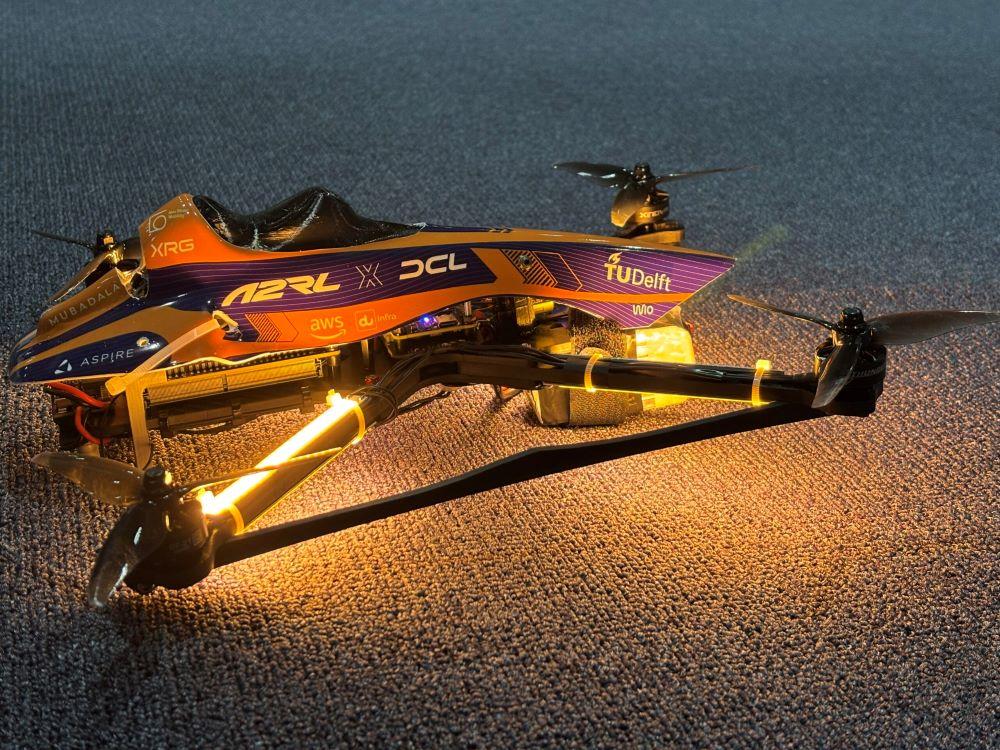Artificial intelligence (AI) has beaten a human pilot in drone races conducted in Abu Dhabi.
The victory by Delft University of Technology’s MAVLab was the first for an AI-controlled drone in an international competition, on a track designed to push the boundaries of perception-based autonomy.
The technology behind the victory is expected to contribute to many robotics applications, from ground to space, while faster drones could be used to deliver blood and defibrillators more urgently or to search disaster zones for survivors more quickly.
Over two days in April, TU Delft competed against 13 international teams as well as human-piloted drones in a championship organized by the Abu Dhabi Autonomous Racing League (A2RL) and Drone Champions League (DCL).
Each team raced a standardized drone equipped with an Nvdia Jetson Orin NX computing module, a single forward-facing camera and an inertial measurement unit for onboard sensing and control. The drones were flown over a visually sparse track at speeds up to 150 kph (95 mph).
The goal of the A2RL Autonomous Drone Championship in Abu Dhabi was to push the frontier of physical AI by stimulating research into AI operating under extreme time pressure with very limited computing and sensing resources.
Use of just one forward-facing camera differed from previous autonomous drone races, TU Delft says, and is more similar to how human pilots fly first-person-view drones, increasing the perception challenges for AI.
Use of rolling shutter cameras, which rapidly scan the scene, increased the difficulty, and the 11-gate racecourse was designed to challenge perception-based autonomy, featuring wide gate spacing, irregular lighting and minimal visual markers.
The drone developed by TU Delft’s MAVLab won the AR2L Grand Challenge, setting the fastest time over the 170-m (560 ft.) track by completing two laps in 17 sec. MAVLab went on to win a knockout challenge against human pilots, beating three former DCL world champions and reaching speeds up to 95.8 kph.

